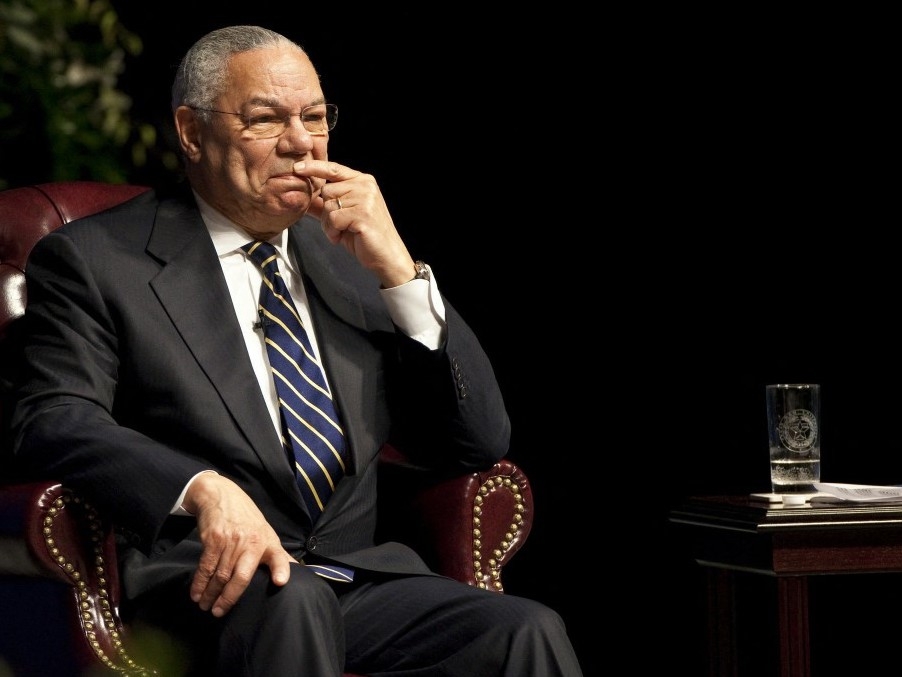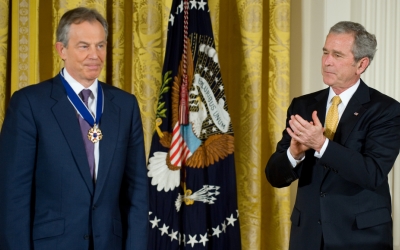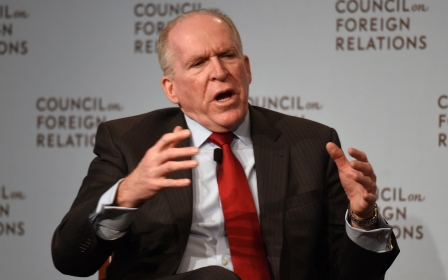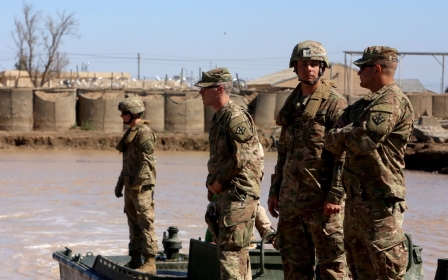Colin Powell: Former US secretary of state and Iraq war proponent dies

Colin Powell, the former US secretary of state and one of the most prominent officials to push for the 2003 invasion of Iraq, died on Monday at the age of 84 from Covid-19 complications, his family announced.
“General Colin L. Powell, former US Secretary of State and Chairman of the Joint Chiefs of Staff, passed away this morning due to complications from Covid-19,” the family wrote on Facebook.
“We have lost a remarkable and loving husband, father, grandfather and a great American.”
The Powell family added that he had been fully vaccinated against the disease, but did not give further details on his illness.
Condolences poured in, including from former President George W. Bush who hailed Powell as a "great public servant".
New MEE newsletter: Jerusalem Dispatch
Sign up to get the latest insights and analysis on Israel-Palestine, alongside Turkey Unpacked and other MEE newsletters
"Many presidents relied on General Powell's counsel and experience," the former president wrote in a statement.
One of the United States' most prominent Black political figures for decades, Powell's legacy is marked by his role in making the case for the US invasion of Iraq in 2003 during his tenure as secretary of state under the Bush administration.
Tony Blair, the former UK prime minister who also pushed for the invasion of Iraq, citing “unquestionably links between al-Qaeda and Iraq", praised Powell as a "towering figure".
Trailblazing career
Born 5 April 1937 in Harlem, New York to Jamaican immigrant parents, Powell rose to become the first Black US secretary of state and top military officer.
He served three Republican presidents in senior posts and reached the top of the US military as it was regaining its vigour after the trauma of the Vietnam war.
Back in Washington, he quickly rose through the ranks to the pinnacle of the national security establishment, serving Ronald Reagan as national security adviser, and both George H.W. Bush and Bill Clinton as chairman of the Joint Chiefs from 1989 to 1993.
After the 1990 Gulf War, he was depicted by some as a potential future president of the United States, but ultimately he never ran for the White House.
It was ahead of the Gulf War that the so-called "Powell doctrine" entered public discourse - emphasising national security interests and heavy troop deployment during US military offensives overseas.
Powell will also be remembered for his infamous February 2003 speech to the United Nations Security Council about the alleged existence of weapons of mass destruction in Iraq in the hands of then-president Saddam Hussein - evidence which was later proven to be false.
The US invasion of Iraq is believed to have led to the deaths of an estimated 288,000 people in Iraq - at least 185,930 of them civilians - and to have led to the rise of the Islamic State group.
Powell later expressed regret for pushing for the war.
"It's a blot... and will always be a part of my record. It was painful. It's painful now," Powell said in a 2005 interview with ABC News.
Since 2008, he had endorsed the Democrats for the presidency, twice backing Barack Obama, and then Hillary Clinton and Joe Biden.
Powell earned a number of civilian honors, including the Presidential Medal of Freedom - twice from Bush Senior and Clinton.
He married his wife Alma in 1962. They had three children: Michael, Linda and Annemarie.
Middle East Eye delivers independent and unrivalled coverage and analysis of the Middle East, North Africa and beyond. To learn more about republishing this content and the associated fees, please fill out this form. More about MEE can be found here.





